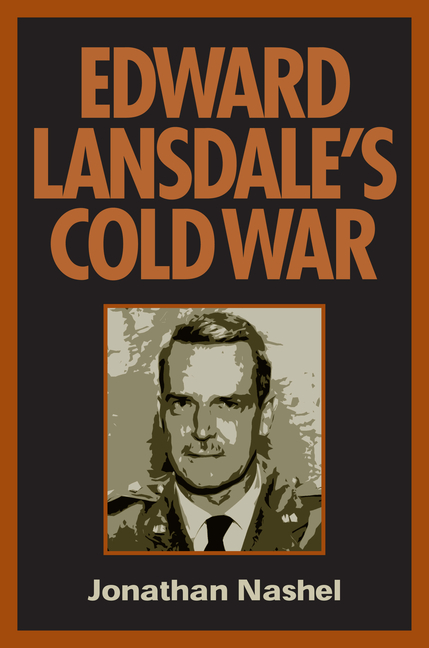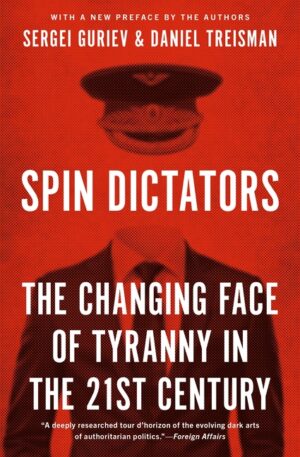An original and insightful work, combining the approaches of cultural and diplomatic history in ways that finally reveal the real and symbolic significance of Edward G. Lansdale's Cold War work. While many others have treated Lansdale as emblematic, Jonathan Nashel is the first historian to carefully connect his words and deeds to the national mission he represented.–James T. Fisher, author of
Dr. America: The Lives of Thomas A. Dooley, 1927-1961 The strength of Nashel's work is the complexity of his Lansdale profile. Not a standard biography, it seeks to assess Lansdale's career and image in relationship to the events and culture of the Cold War. In addition to attracting scholars in the fields of foreign relations, American studies, cultural history, and Vietnam War history, it will appeal to many general readers of modern U.S. history and biography.–Christian G. Appy, author of
Patriots: The Vietnam War Remembered from All Sides Presenting a 'mythography' of the Cold War's most mythic character, Nashel examines the many personae represented by Lansdale and by his multiple interpreters. People interested in foreign policy, cultural studies, or spy novels and movies will all enjoy reading this fresh and inventive look at the culture of the Cold War's secret operations. Nashel writes with a verve and color that is worthy of his subject.–Emily S. Rosenberg, author of
A Date Which Will Live: Pearl Harbor in American Memory Nashel writes a convincing study of Edward Lansdale and his place in American Cold War culture. Thoroughly researched. . . . (A) major contribution to the cultural and military historiography of the Cold War.–
H-Net Reviews Nashel makes an important contribution through his careful sifting of the history, legend, and symbolic representation of the notorious CIA 'spook.' The book is well written, effectively organized, and accessible to scholars, students, and the public.–
Journal of American History As Jonathan Nashel's assiduous, absorbing book reveals, Lansdale was a bundle of contradictions: furtive and flamboyant, shrewd and naive, conspiratorial and idealistic, a charlatan and (almost) an innocent abroad.–
Journal of Cold War Studies An impressively three-dimensional portrait of this three-dimensional man. Nashel's honesty with his readers puts to shame Lansdale's bluff, faux candor. . . . Reading the book is rather like having an extended conversation with a really interesting person. Nashel's is the most thoughtful and sensitive study of Lansdale we are likely to get, and it is as entertaining and troubling as the subject himself.–
Diplomatic History A biography of Edward Lansdale, American spook extraordinaire. . . . A specter is haunting Iraq, the specter of Edward Lansdale. Most American troops now battling Iraqi insurgents are too young to know Lansdale's name. But during the cold war he was the Zelig of Washington's global counterinsurgency effort, squelching a rebellion in the Philippines, plotting the overthrow of Fidel Castro in Cuba and blocking a potential Communist takeover of Vietnam in the first days of America's involvement. . . . Nashel is interested not so much in recounting Lansdale's life and career as in writing what he calls a 'cultural mythography, ' exploring Lansdale's connection to American cold-war culture. . . . In truth, as Nashel convincingly demonstrates, the folksy, harmonica-playing Lansdale may have been able to befriend Filipinos and Vietnamese, but he remained blind to the profound cultural differences that separated them from Americans. To Lansdale, the American revolutionaries at Concord and Valley Forge would have recognized the Vietnamese as 'kindred souls.' But his injunctions to Ngo Dinh Diem to imitate George Washington by becoming the father of his country were so maddening that one day Diem shouted at him, 'Stop calling me papa!' As Nashel puts it, Lansdale 'combined a nearly anthropological interest in the indigenous traditions and concerns of Southeast Asians with a passionate and fatal assumption that those traditions could only be leading in the direction of an American-style democracy.–
New York Times Book Review Jonathan Nashel has written not only a standard biography of Edward Lansdale but also a biographical rumination organized around several themes and offering a heavy dose of cultural analysis. . . . Nashel is broadly successful. . . This is a rewarding and thought-provoking book. The research is wide-ranging and imaginative.–
American Communist History As Jonathan Nashel's assiduous, absorbing book reveals, Lansdale was a bundle of contradictions: furtive and flamboyant, shrewd and naive, conspiratorial and idealistic, a charlatan and (almost) an innocent abroad. Many of the themes of Nashel's enlightening book, regarding Landsdales's life and the increasingly far-off times in which he thrived, are embedded in these hollow, hypnotic eyes.–
Project Muse An original and insightful work, combining the approaches of cultural and diplomatic history in ways that finally reveal the real and symbolic significance of Edward G. Lansdale s Cold War work. While many others have treated Lansdale as emblematic, Jonathan Nashel is the first historian to carefully connect his words and deeds to the national mission he represented.–
Journal of American History





